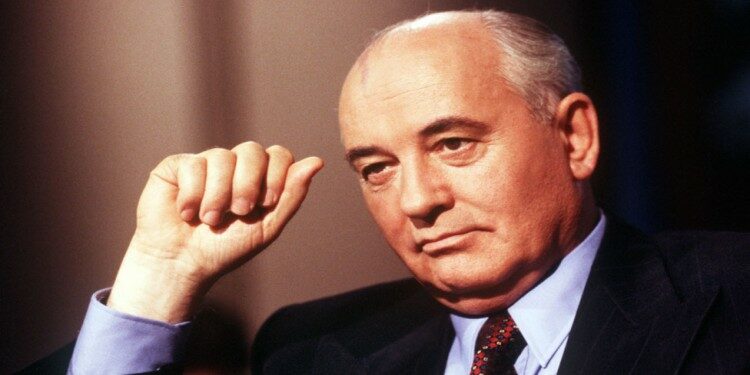In news– Mikhail Gorbachev, who changed the course of history by triggering the collapse of the Soviet Union, has died in Moscow recently.
A brief note on Mikhail Gorbachev-
- Mikhail Sergeyevich Gorbachev was a Russian and Soviet politician who served as the last leader of the Soviet Union.
- As the country’s head of state from 1988 to 1991, he served as Chairman of the Presidium of the Supreme Soviet from 1988 to 1989, Chairman of the Supreme Soviet from 1989 to 1990, General Secretary of the Communist Party of the Soviet Union from 1985 to 1991, and President of the Soviet Union from 1990 until the country’s dissolution in 1991.
- Ideologically, Gorbachev initially adhered to Marxism–Leninism but moved towards social democracy by the early 1990s.
- Gorbachev was born in Privolnoye, Stavropol Krai, to a poor peasant family of Russian and Ukrainian heritage.
- Growing up under the rule of Joseph Stalin, in his youth he operated combine harvesters on a collective farm before joining the Communist Party, which then governed the Soviet Union as a one-party state according to the prevailing interpretation of Marxist–Leninist doctrine.
- After Stalin’s death, became a keen proponent of the de-Stalinization reforms of Soviet leader Nikita Khrushchev.
- Although committed to preserving the Soviet state and its socialist ideals, Gorbachev believed significant reform to be necessary, particularly after the 1986 Chernobyl disaster.
- He withdrew troops from the Soviet–Afghan War and embarked on summits with United States president Ronald Reagan to limit nuclear weapons and end the Cold War.
- Domestically, his policy of glasnost (“openness”) allowed for enhanced freedom of speech and press, while his perestroika (“restructuring”) sought to decentralize economic decision-making to improve its efficiency.
- His democratization measures and formation of the elected Congress of People’s Deputies undermined the one-party state.
- Gorbachev declined to intervene militarily when various Eastern Bloc countries abandoned Marxist–Leninist governance in 1989–1990.
- Internally, growing nationalist sentiment threatened to break up the Soviet Union, leading Marxist–Leninist hardliners to launch the unsuccessful August Coup against Gorbachev in 1991.
- In the coup’s wake, the Soviet Union dissolved against Gorbachev’s wishes.
- After resigning the presidency, he launched the Gorbachev Foundation, became a vocal critic of Russian presidents Boris Yeltsin and Vladimir Putin, and campaigned for Russia’s social-democratic movement.
- Gorbachev’s desire to pull the USSR out of economic and social stagnation not only led to the collapse of the USSR but also ended the cold war.
- The award of the 1990 Nobel Peace Prize marked the pinnacle of world acclaim for the role that Gorbachev, then Soviet president, had played in ending the Cold War without bloodshed.
















